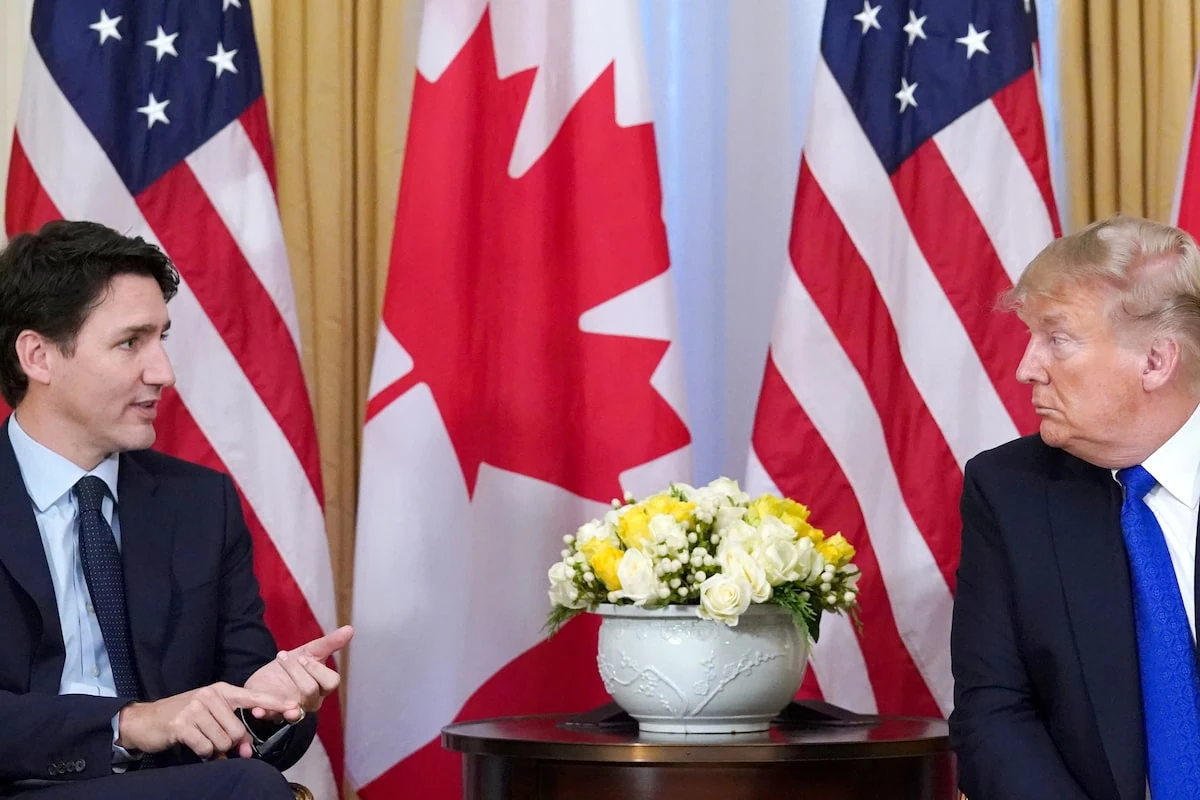
A Borderline Question Worth Asking
With legal battles and political controversy trailing Donald Trump, one question keeps surfacing: Can he legally enter Canada?
It’s not just media chatter. Canada has clear rules about who gets in—and who doesn’t—especially when it comes to criminal records, public safety, and national security. So, where does Trump stand?
Trump and Canada: What’s the History?
Has Trump Been to Canada Before?
Yes, but rarely. He visited Quebec in 2018 for the G7 Summit during his presidency—a trip marked by tension with Prime Minister Justin Trudeau. Prior to that, the Trump Organization opened a luxury hotel in Vancouver, though Trump didn’t attend the launch.
How Canada Decides Who’s Allowed In
Immigration and Refugee Protection Act (IRPA)
Canada’s Immigration and Refugee Protection Act (IRPA) outlines the main reasons someone can be denied entry:
- Criminal convictions
- Human rights violations
- National security threats
Political views or notoriety don’t qualify. The focus is strictly legal.
Americans at the Border
U.S. citizens like Trump don’t need a visa to visit Canada. They only require an Electronic Travel Authorization (eTA) for air travel. A valid U.S. passport is enough for land or sea entry. If visiting in a private capacity, even a former president goes through the same checks as any other American traveler.
Could Trump Be Barred from Entry?
Understanding Criminal Inadmissibility
Canada bars entry to those convicted of crimes considered serious under Canadian law. Charges or indictments aren’t enough—it must be a conviction, and the offense must correspond with Canadian legal standards (e.g., fraud, DUI, assault).
Trump’s Legal Status
As of now, Trump faces several criminal indictments in the U.S., but no convictions. Unless that changes, and unless any conviction aligns with Canadian law, he is not criminally inadmissible.
Security and Human Rights Issues
Is He a National Security Concern?
Canada has denied entry to individuals involved in terrorism, inciting violence, or organized crime. While Trump’s political rhetoric is divisive, there is no legal evidence linking him to national security threats.
Any Human Rights Violations?
Canada can bar individuals involved in war crimes, inciting hate, or violating human rights. Allegations or controversial statements are not enough—legal findings are required. So far, Trump doesn’t meet this threshold.
Could Politics Block His Entry?
Border Officer Discretion
While Canada doesn’t bar visitors based on political opinions, border officers have discretion to deny entry if they believe someone may pose a risk to public order. This applies even without a conviction.
Past Precedents
Canada has previously refused entry to public figures including:
- Lauren Southern, over public disorder concerns
- Louis Farrakhan, due to hate speech
- George Galloway, for alleged ties to extremist groups
These were based on specific legal concerns—not general political controversy.
Does Trump Fit That Pattern?
Not currently. Trump hasn’t been convicted or formally linked to actions that would justify denial under public safety concerns. Denying entry to a former U.S. president would be unprecedented and diplomatically sensitive.
Could Canada Actually Turn Him Away?
Here’s how things stand today:
- Criminal conviction? – No
- Security risk? – No
- Human rights violations? – No
- Political ban? – Unlikely
Unless future events change one of these conditions, there’s no current legal basis to refuse him entry.
Diplomatic Status and Travel
What Passport Does He Use?
Trump travels on a regular U.S. passport. Former presidents don’t get automatic exemptions or perks when traveling privately.
What If He Returns as President?
If Trump were re-elected, diplomatic protocols would apply during official visits. However, these affect how he is received, not whether he can legally enter.
Final Word
Can Donald Trump enter Canada?
Yes—for now. He has not been convicted of any crime that would render him inadmissible under Canadian law. There’s no legal ruling linking him to national security threats or human rights violations.
Unless new legal developments emerge, Trump can legally enter Canada like any other U.S. citizen. But Canadian border policy is rooted in legal facts—not political popularity. If the facts change, the outcome might too.
Quick FAQs
Q: Could Trump be deported from Canada?
No. If he were deemed inadmissible, he would be denied entry at the border—not deported after entry.
Q: Would a U.S. pardon change his status?
Not necessarily. Canada evaluates criminal admissibility based on its own legal standards. A U.S. pardon doesn’t erase inadmissibility under Canadian law.
Q: Could Canada change its stance later?
Yes. A conviction or new legal evidence could shift the decision.
Q: How does Canada compare to other countries?
Canada enforces its rules consistently, similar to the UK or Australia. High-profile status doesn’t offer immunity.




Leave a Reply